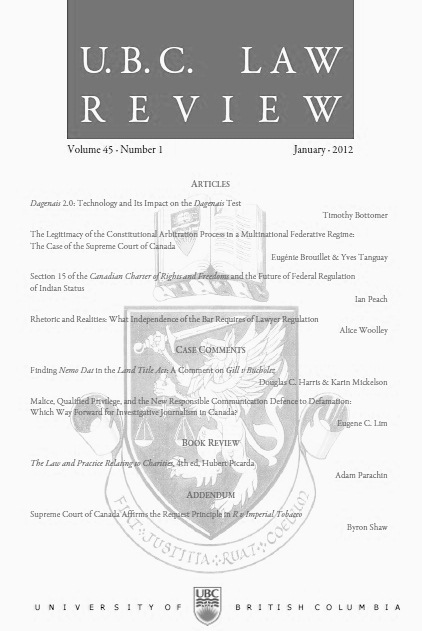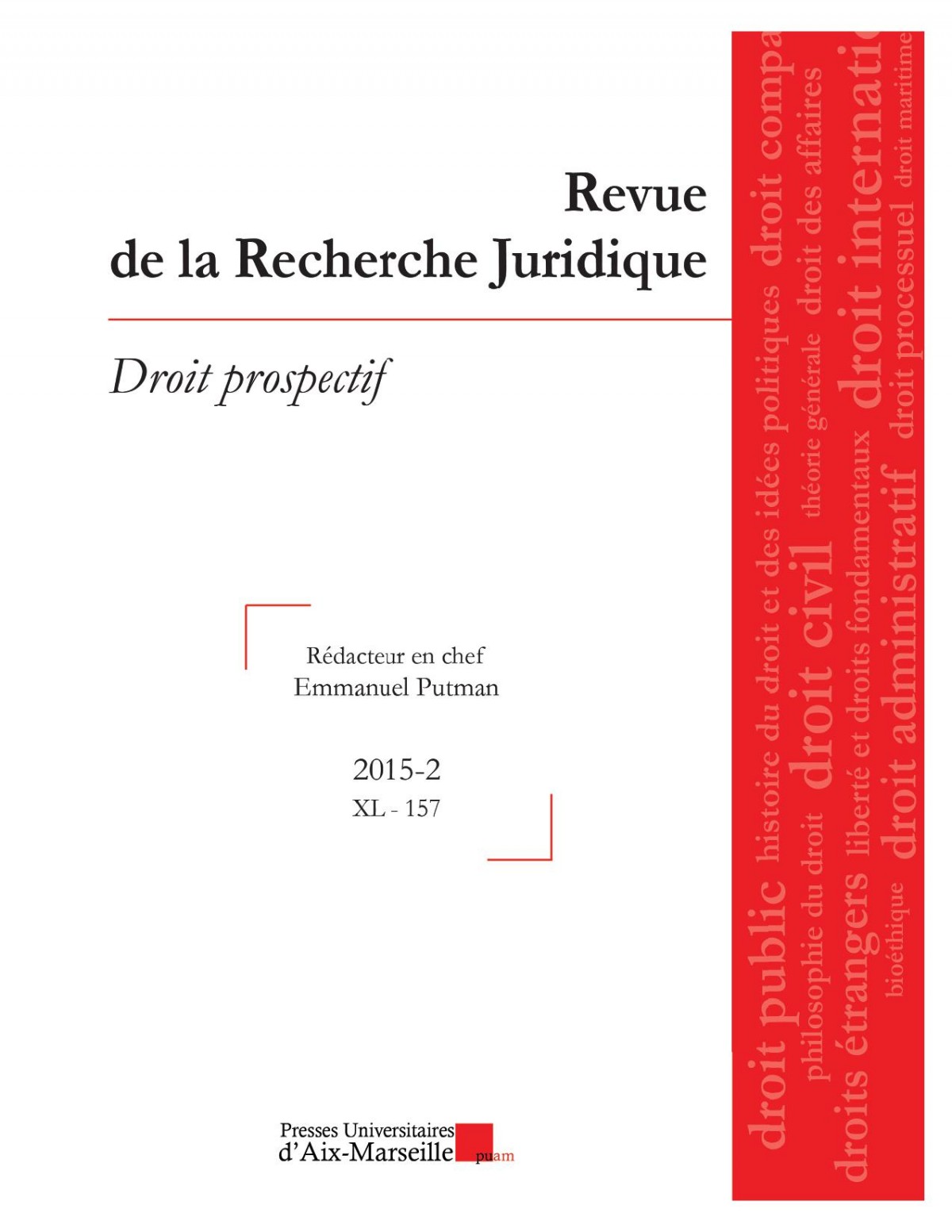Gouvernance normes de droit Nouvelles diverses Structures juridiques
Benefit Corporations for a Sustainable Economy
Ivan Tchotourian 20 janvier 2016
Dans un article publié aujourd’hui, Mélissa Schweyer revient sur le thème de la Benefit Corporation pour en prôner une adoption au Canada : « Benefit Corporations for a Sustainable Economy » (TripleUndit, 20 janvier 2016).
In 2015, we witnessed what is possible when large groups of people come together to change the world. But with the adoption of both the Sustainable Development Goals (SDGs) and the Paris Agreement, we have a lot of promises to keep and work to get done.
A sustainable economy is within our reach, but it will take the cooperation of multiple stakeholders, the investment of billions of funds and the dedication of the entire world.
Lobbyists, activists, scientists and politicians have already — quite successfully — mapped out some of the important policies that need to be adopted by governing bodies around the world in order to propel us into a sustainable economy by 2030.
(…) Any policy that can boost cooperation, facilitate multi-channel communications, incentivize information-sharing, strengthen scalable impact, create new sustainable capital, mitigate environmental degradation, motivate early adoption and provide long-term solutions are policies worth lobbying for.
Today, I’m lobbying for a policy that can do all of those things.
I strongly believe that governments should adopt policies that provide companies with the ability to register as purpose-driven corporations. Purpose-driven corporations are different from traditional for-profit companies and nonprofit organizations because they operate with a triple bottom line, equally valuing profits, people and the planet.
Legislative terminology refers to them as Benefit Corporations.
Pour rappel, le Barreau canadien avait pris position à l’été 2014 pour demander au gouvernement fédéral de faciliter la création des Benefit Corporation (ici).
The Canadian Bar Association (CBA) has recommended that Parliament change the federal statute under which businesses are established to make it clear that corporations can pursue public benefit purposes beyond pure profit.
À la prochaine…
Ivan Tchotourian
engagement et activisme actionnarial Gouvernance Normes d'encadrement normes de droit normes de marché
Activisme au Canada : Brian Cheffins commente
Ivan Tchotourian 16 janvier 2016
Bonjour à toutes et à tous, je suis tombé par hasard ce matin sur cet article du professeur Brian Cheffins intitulé : « Hedge fund activism Canadian style« (UBC Law Review, vol. 47, no 1, janvier 2014). Cet article est l’occasion de revenir sur la notion d’activisme sous un angle canadien.
The forthright brand of shareholder activism hedge funds deploy became during the 2000s a significant feature of Canadian corporate governance. This paper examines hedge fund activism “Canadian style.” The paper characterizes the interventions hedge funds specialize in as “offensive” shareholder activism and uses a heuristic device, “the market for corporate influence”, to identify the variables that dictate how frequent such activism is likely to be. This analytical structure is used to explain why hedge fund activism has become part of the Canadian corporate governance landscape and has displaced at least partly a Canadian shareholder “culture of passivity.”
À la prochaine…
Ivan Tchotourian
autres publications devoirs des administrateurs Gouvernance Normes d'encadrement normes de droit normes de marché Nouvelles diverses objectifs de l'entreprise Valeur actionnariale vs. sociétale
Publication d’un article : L’art de la juste équivalence en droit ou comment traduire « corporate »
Ivan Tchotourian 14 janvier 2016
Bonjour à toutes et à tous, la Revue de Recherche Juridique – Droit prospectif vient de publier un de mes articles intitulé : « L’art de la juste équivalence en droit : Discussion autour du mot « corporate » de l’expression corporate governance« (RRJ 2015-4, p. 455-502).
- Résumé : Alors que le droit donne aux mots une force et une valeur particulières, la traduction contemporaine de l’expression corporate governance suscite la réflexion. Deux aspects de cette traduction de corporate governance doivent à notre sens être dénoncés : d’un côté, l’assimilation portée par la science économique faite entre corporate et firm sans changer expressément les termes (traduction intra-langagière inexacte) et, deuxièmement, la traduction dans le langage français et francophone de corporate par « entreprise » sans tirer les conséquences qui s’imposent (traduction inter-langagière inexacte). Longtemps corpus mysticum du juriste français, le corporate governance est un champ disciplinaire qui doit être investi par les juristes. Malgré la difficulté de la tâche, ces derniers doivent contribuer à identifier le juste équivalent au corporate governance afin de mettre en lumière ce qui constitue les fondations de toute aventure économique : une entreprise qui se trouve placée au cœur de la cité. En s’appuyant sur corporate, cette étude démontre que le juriste dispose déjà de tous les outils intellectuels – telles les théories nord-américaine et française de l’entreprise – pour appréhender parfaitement le corporate governance de demain : un corporate governance qui ne sera pas bâti sur une conception exclusivement contractualiste et réductrice de l’entreprise au service des seuls actionnaires.
- Abstract : As law breaths new life to words, the modern translation of the term “corporate governance” arouses some considerations. Two issues arise from this particular translation of the term “corporate governance” and must be here exposed: first, the mistaken equalization, in the field of economics, of the terms “corporate” and “firm” (same language miswording) and, second, the unconsidered translating, from English to French, of the term “corporate” into the term “entreprise” (different language miswording). Long considered the corpus mysticum of the French jurists, the corporate governance is a field of study that must be vested by these legal experts. Notwithstanding the difficulty of this task, they must contribute to the identification of the right counterpart of corporate governance to bring light to the foundations of every economic venture, a business within the very heart of society. By referring to the term “corporate”, this study proposes that the legal experts have already every intellectual tool (e.g. the North-American theories and French theories) to properly tackle the corporate governance of tomorrow, which is a corporate governance that won’t be leaning on exclusively on the theory of contracts and shareholders supremacy.
Voici le plan de l’article (en exclusivité !) :
- Langue et droit : la force des mots
- Problème de sens : une approche restreinte et critiquable
- Paysage juridique français
- Paysage juridique anglo-américain
- Problème de valeurs : une approche ouverte et souhaitable
- De corporate governance à firm governance : des juristes sous influence
- Critiques d’un glissement sémantique : où est l’équivalent juridique de corporate ?
- Juste traduction et droit : « The law is a profession of words »
À la prochaine…
Ivan Tchotourian

